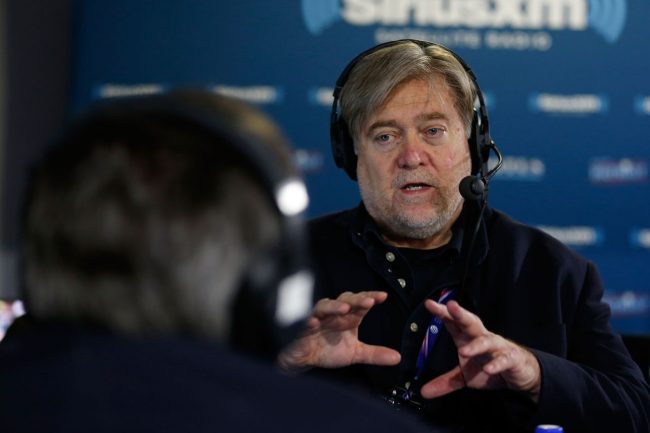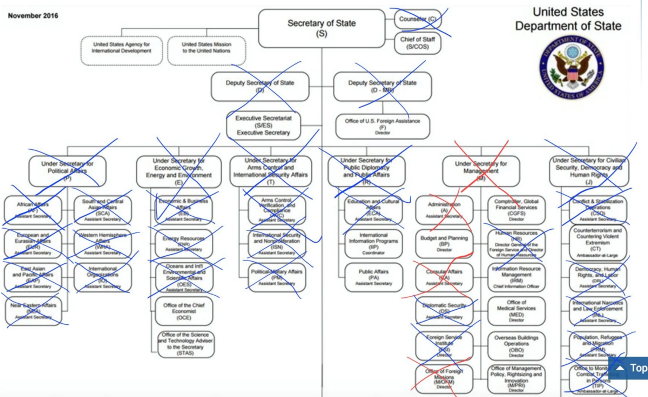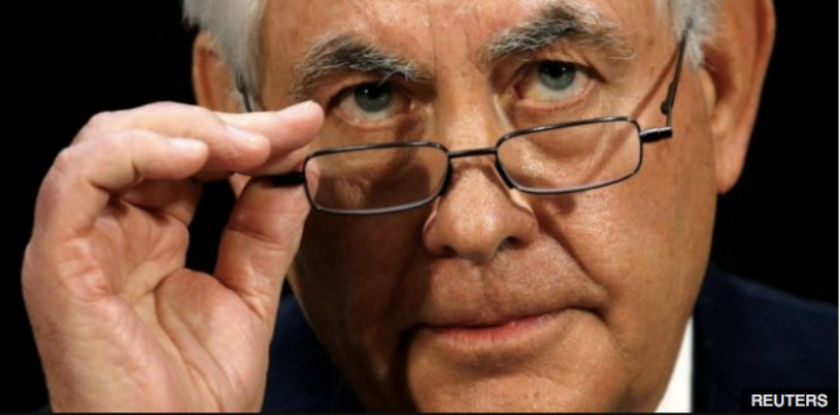Donald Trump’s campaign slogan “Make America Great Again” is already being translated into his foreign policy strategy. The country is renouncing the idea of the “global empire for the world” and returning to the “global empire for America” model.
For the US, it means disengaging from the post-World War II obligations that guaranteed the international stability. For the rest of the world, it implies liquidating the established alliances that have been formed on the ideological grounds with financial support from the US government. These alliances will be replaced by coalitions based of shared interests.
The realization of this new strategy will be entrusted to new people. Immediately after Trump’s victory, the heads of the key US State Department offices resigned in a hurry. Victoria Nuland, the architect of the US ideological platform in Europe, was one of the first to leave. Had Hillary Clinton won, Nuland could have been appointed the new Secretary of State.

Now Stephan (“Steve”) Bannon, Donald Trump’s political counselor and Chief Strategist of his administration, will become the advocate of the new ideology. Opponents accuse him of promising to destroy “this state” and comparing his mission to Lenin’s experiment.

As we know, the Russian leader was planning to forgo foreign policy believing in the world revolution. In other words, he wanted to convert foreign policy into domestic one. For the US, the situation is reversed. The country can forgo foreign policy because… it can.
The external forces do not threaten America with the occupation of its soil and destruction of the state system. A much more real threat lies in the possibility of the US internal disintegration. This disintegration would be caused by a financial and economic collapse that could be triggered by the external forces. Therefore, the internal stability, not the external threat, is now becoming the factor of vital importance for state security.
This factor was crucial for Trump’s victory. The sociological surveys show that Trump’s electorate is seriously concerned about the problem of survival and their own safety. Preserving the global liberal empire is the least of their worries.
However, for the US, employing this strategy does not mean the empire will be dismantled. Instead, it will be transformed into a system of the “offshore balancing”. This system has already been tested in history. Another “liberal empire” – the British Empire – employed it vigorously. Up until the beginning of the 20th century, it had not formed any strategic alliances preferring to be a part of coalitions and keeping discretion. Historically, they call this strategy “Splendid Isolation”.
The British Empire and the US have an important geopolitical similarity – both are islands. Thus, they do not fear occupation (with allowance to the technology changes). For both, wars mostly mean naval combats and operations on foreign soil. There is, however, a significant difference, too. The British Empire depended on the feedstock supply from its colonies dispersed all over the world. For the US, however, this problem does not even exist. Apart from the state of Hawaii and the other five inhabited island territories, the US sits on its “own” continent.
The oil import reliance on the Persian Gulf supplies have been the major national security threat for the US in the recent years. They had to guarantee the regularity of these supplies by the direct military presence and a system of complex and nontransparent agreements. Today, this problem is receding to the past. The US have increased oil output to unprecedented levels and tried to cover the import with the supplies from the neighboring Canada and Mexico.
Russia is another potential oil supplier for the US. ExxonMobil**, the biggest US oil corporation, has been participating in the development of the Sakhalin offshore fields. The next step was to start the development in the Kara sea together with the Russian Rosneft. However, because of the sanctions against Russia imposed by the Obama administration, ExxonMobil could no longer participate in this project. The new Secretary of State Rex Tillerson, the ExxonMobil former CEO and chairman, can perhaps resolve this problem.

Tillerson fits perfectly into Trump’s new foreign policy strategy – the strategy of American interests for whose sake the new government would go to the lengths of forming any alliances.

Note that the new strategy was formed under necessity. It is also a couple of decades behind time. While the US had been spending money on combatting terrorism in the Middle East, the region was already losing its strategic significance for America. At the same time, the US were investing in NATO, the ally that was supposed to balance out Russia. In fact, however, NATO is nothing but an extension of America itself, from the point of view of the management as well as the financing.

Meanwhile, in the 1990s, Pacific Ocean became the center of the world economy. The world political center called Pacific Rim started to form here as well. The contenders aspirant to become the leader of the region appeared, first of all, China. Then, China and Russia formed a strategic alliance. It became a serious threat for the country that, for the whole first part of the 20th century, considered the region its “own”. Despite the Vietnam defeat, the American diplomats could restore the balance of forces here to the US advantage by recognizing the People’s Republic of China and signing the peace treaty with it. After that, the USSR, the main US competitor, found itself strategically alone. And now America must do this all over again.
Donald Trump acknowledges that he considers China the major US competitor. At the same time, he promises to strengthen the US Navy the main force of which is the Pacific fleet. In this situation, employing the strategy of offshore balancing would unavoidably lead to searching for any ally that could counterbalance China’s influence. Thus, Kazakhstan (recently transformed into a recourse supplier of China) is now becoming a country of interest for the new US foreign policy doctrine. However, in view of this factor, any US attempts to create such balance would force China to put more political pressure on Kazakhstan.
The global conflict between the US and China seems unavoidable. Looking at history parallels, many believe that this conflict is developing in the same manner as the one between Germany and Britain. In such a scenario, smaller neighboring nations usually fall victim to it.
*The scheme below shows the “purge” of the State Department offices after Trump’s ascension.

**Note that ExxonMobil is a part of the North Caspian Operating Company (NCOC) that is developing the Kashagan reserves and has the 16,6% share in the capital of the project.




